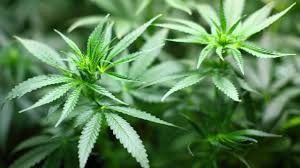 Under legalisation, the sale, possession and use of drugs are legal and regulated by the gov't
Under legalisation, the sale, possession and use of drugs are legal and regulated by the gov't
I have read the article by Dr Akwasi Osei, the acting Chief Executive Officer for the Mental Health Authority, in which he raised concerns about legalising cannabis in Ghana and I would like to assure him and others that civil society in Ghana is not calling for legalisation. What we are calling for is decriminalisation of drugs for personal use.
Let me assure our readers that the two models are never the same thing, as many writers have deliberately chosen to confuse the debate.
In these debates, decriminalisation is often confused with legalisation. Under legalisation, the sale, acquisition, use and possession of drugs are legal and regulated by the government. Our current policies regulating alcohol and tobacco are core examples of this approach in practice. Under this regime, the drug trade is taken away from criminal gangs, whose lucrative illegal markets are undercut and reduced.
Under the decriminalisation model adopted by a number of countries around the world, the use and personal possession of drugs remain prohibited – but is no longer a crime. It is instead punishable by administrative sanctions much like traffic violation offences. Sanctions may include fines, community-based service orders, warnings, education classes, – or no penalty at all.
The said article also points to the fact that Dr Osei is, to some extent, in favour of decriminalisation. Our only point of disagreement, however, is his view that decriminalisation should only apply to problematic drug users.
In our view, decriminalisation should apply to anyone who uses drugs irrespective of whether you are — a recreational or a problematic user.
It is an undeniable fact that cannabis may be harmful to the consumer, but we need to understand that we do not need to add to this harm by criminalising people who use them.
Criminalisation has proven to be worse. It poses both social and health harms and risks to Ghanaians, so we must make sure we mitigate those risks and by taking an effective harm reduction approach to protect our communities, our children and the health of Ghanaians by decriminalising use.
What we need to ask ourselves now is: If using drugs is primarily a health issue, why is the primary response punitive or repressive in nature, involving the police and military, rather than doctors and health professionals? In which other areas of public health do we criminalise patients we are aiming to help?
Drug-related issues are cross-cutting, they are a range of policy areas, but for illegal drugs, the balance has shifted to the point where consideration of public health has been increasingly marginalised by an excessive focus on enforcement, as the UN Office on Drugs and Crime has itself noted.
The rationale behind decriminalisation is to reduce the harms associated with criminalising people who use drugs because there are many risks associated with drug use – not least HIV and other infections, and the thousands of drug-related deaths every year.
The negative impact of criminalising people who use drugs continues to be an area of serious concerns. Individuals have a right to access life-saving health services without fear of punishment or discrimination. However, the fear of criminal sanctions drives people who use drugs away from life-saving harm reduction services, leading to infections and premature death from HIV and Hepatic C. This notion has been recognised by many UN agencies such as UNODC, WHO, and the UNDP.
Stringent laws, spectacular police drives, vigorous prosecution and incarceration of users and peddlers have proved not only ineffective and enormously expensive as a means of correcting the problem, but they are also unjustifiably and unbelievably cruel in their application to the unfortunate drug victims.
Prohibitionism has failed to curb or diminish drug use and associated problems, failing even by its metrics and standards; the astronomical numbers of people who use drugs speak for themselves, where estimates point to strikingly high levels of global drug use.
Drug use is never a police problem; it has never been, and never can be solved by police officers. It is first and last a medical problem, and if there is a solution, it will be discovered not by police officers, but by scientific and competently trained medical experts whose sole objective will be the reduction and possible eradication of this devastating appetite.
Despite the fact that most drug offenders are non-violent, the stigma attached to a conviction can prevent employment and education opportunities. Stigma can be compounded and intersected, with drug use becoming a double, triple or quadruple. Have we thought about the damage done to families by the millions of criminal records handed down to adults as if they do not have wider consequences for children?
Globally, the repressive approaches to drug use continue to be implemented, in spite of there being little evidence to suggest that these policies have yielded positive results, with it being argued by many that the global war on drugs has failed. (Global Commission on Drug Policy 2011:4)
Writer’s e-mail: mariagorettiane.loglo@gmail.com